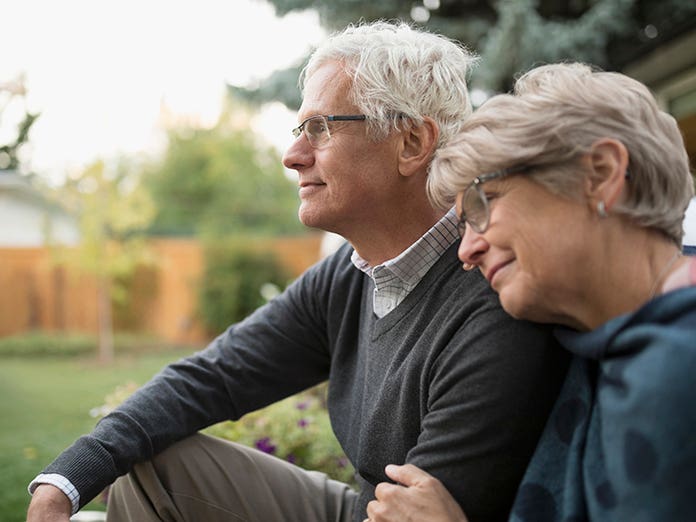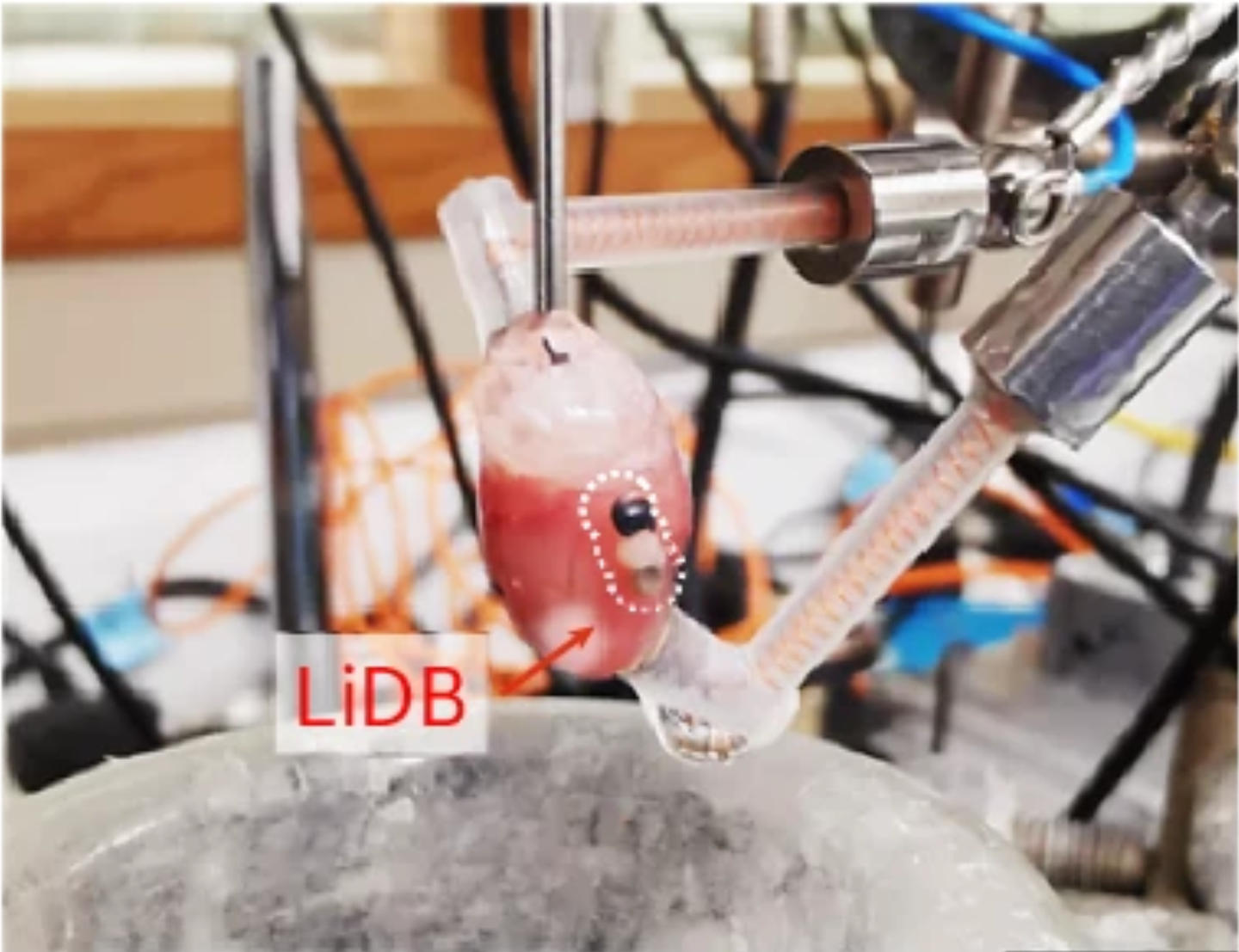Surprising link discovered between marriage and dementia risk
A new 18-year study suggests unmarried adults may have lower dementia risk than married ones, challenging old assumptions.

An 18-year study finds that unmarried older adults may be less likely to develop dementia than those who are married. (CREDIT: Getty Images)
For years, people have believed that being married protects your health and helps you live longer. Studies have shown that married individuals are less likely to suffer from heart disease and stroke, and they often live well into old age. This pattern has been explained by what's called the marital resource model.
According to this idea, marriage provides emotional, social, and financial support, all of which contribute to better health and possibly sharper thinking as people age.
But what if that belief doesn’t hold up when it comes to dementia?
A surprising new study led by Selin Karakose, PhD, at Florida State University, flips the script. Using data from more than 24,000 older adults followed for up to 18 years, researchers found that married individuals actually had a higher risk of developing dementia than those who were never married, divorced, or widowed.
Challenging the marriage myth
Previous research had already hinted that never-married people might face a higher chance of developing dementia. Some studies also linked widowhood and divorce with greater dementia risk. But the evidence has never been clear. One meta-analysis suggested that widowhood — not divorce — was associated with a significantly higher risk. Other research reported no real differences at all.
The latest findings suggest something very different. People who had never married were 40% less likely to develop dementia than those who were married. Divorced individuals had a 34% lower risk, and widowed people showed a 27% drop.
These numbers come from initial models that adjusted only for age and sex. After accounting for other factors — including genetics, education, and health conditions — the risk for widowed individuals was no longer statistically significant. But the reduced risk remained for divorced and never-married adults.
Related Stories
The results, published in Alzheimer’s & Dementia, call into question the long-held idea that marriage guards against memory loss. Karakose and her team suggest that being unmarried might actually offer benefits when it comes to brain health.
A closer look at dementia types
Not all dementia is the same. In this study, researchers didn’t just lump all forms together. They broke them down into specific types: Alzheimer’s disease, Lewy body dementia, vascular dementia, and frontotemporal dementia.
Over nearly four years of follow-up, 4,853 participants were diagnosed with dementia. Most of them — 3,729 people — had Alzheimer’s disease. A smaller number developed Lewy body dementia (341), vascular dementia (246), or frontotemporal dementia (184).
Across the board, being unmarried was associated with a lower risk of developing Alzheimer’s or Lewy body dementia. There were no significant associations for vascular dementia or frontotemporal dementia.
Another important finding: Unmarried individuals were less likely to progress from mild cognitive impairment — or MCI — to full-blown dementia. That held true across all three unmarried groups.
What could explain this?
One possibility is diagnosis timing. Married individuals often have spouses who spot changes in memory or behavior and push them to see a doctor. This could lead to earlier dementia diagnoses in married people — making it seem as if their risk is higher.
But all participants in this study were evaluated annually by trained professionals at Alzheimer’s Disease Research Centers. These centers use neuropsychological tests and clinical exams to assess cognitive status. That setup might cancel out the so-called ascertainment bias — the idea that some groups are more likely to be diagnosed simply because they’re monitored more closely.
Still, researchers didn’t rule out this possibility entirely. “The findings could indicate delayed diagnoses among unmarried individuals,” Karakose noted. On the other hand, they could “challenge the assumption that marriage protects against dementia.”
Some experts suggest that social support outside of marriage might matter more. Never-married individuals may build strong friendships and community ties, leading to mental stimulation that protects the brain. Divorced or widowed people often reconnect with others, take on new roles, and may even experience increased happiness or life satisfaction after major changes.
In fact, some studies have found that divorce, far from being a health risk, can lead to higher emotional well-being. For example, one study found that people who got divorced experienced a slower rate of cognitive decline. Others reported that divorced and widowed individuals were more likely to socialize and engage in health-conscious behaviors than their married peers.
Complex connections beyond relationship labels
The relationship between marriage and dementia risk is clearly more complicated than once thought. Marital status alone may not tell the whole story. Relationship quality, social support, cultural factors, and mental health all play roles.
One earlier study, using data from the Health and Retirement Study between 2000 and 2014, found that unmarried people had higher odds of developing dementia. But that research didn’t adjust for as many factors as the current study did. And it didn’t explore dementia subtypes.
The Florida State University study used data from the National Alzheimer’s Coordinating Center (NACC), which tracks individuals recruited from dementia clinics across the U.S. Participants were all free of dementia at the start. Most were white, and about 60% were female. The average age was just under 72.
Participants were classified as married, divorced (which included separated individuals), widowed, or never married. Those living with partners were included in the married group.
Over the study period, some participants’ marital status changed. Interestingly, people who became widowed during the study were less likely to develop dementia than those who stayed married the whole time.
Still, the researchers point out that some limitations exist. The NACC population may not represent the broader U.S. public. It included mostly white, married individuals, and didn’t factor in life stresses like financial hardship or social isolation, which could influence brain health.
Karakose and her team emphasized the need for more detailed studies. “Examining the association through duration of post-marital life, including transitions to divorce, with the role of relationship factors such as marital quality and relationship duration may provide a more nuanced understanding,” the researchers wrote.
Where does this leave us?
Marriage might still offer health benefits in some areas. But when it comes to dementia, the picture is far less clear. The key takeaway from this study is that marriage alone doesn’t guarantee better cognitive health.
Relationship status seems to matter less than how supported and connected people feel. Whether single or married, emotional well-being, meaningful social ties, and a healthy lifestyle might offer the best protection for the aging brain.
These findings won’t change overnight what people think about marriage and aging. But they do suggest it’s time to question long-held beliefs — and recognize that being unmarried might not be as risky as once feared.
Note: The article above provided above by The Brighter Side of News.
Like these kind of feel good stories? Get The Brighter Side of News' newsletter.
Joshua Shavit
Science & Technology Writer | AI and Robotics Reporter
Joshua Shavit is a Los Angeles-based science and technology writer with a passion for exploring the breakthroughs shaping the future. As a contributor to The Brighter Side of News, he focuses on positive and transformative advancements in AI, technology, physics, engineering, robotics and space science. Joshua is currently working towards a Bachelor of Science in Business Administration at the University of California, Berkeley. He combines his academic background with a talent for storytelling, making complex scientific discoveries engaging and accessible. His work highlights the innovators behind the ideas, bringing readers closer to the people driving progress.



